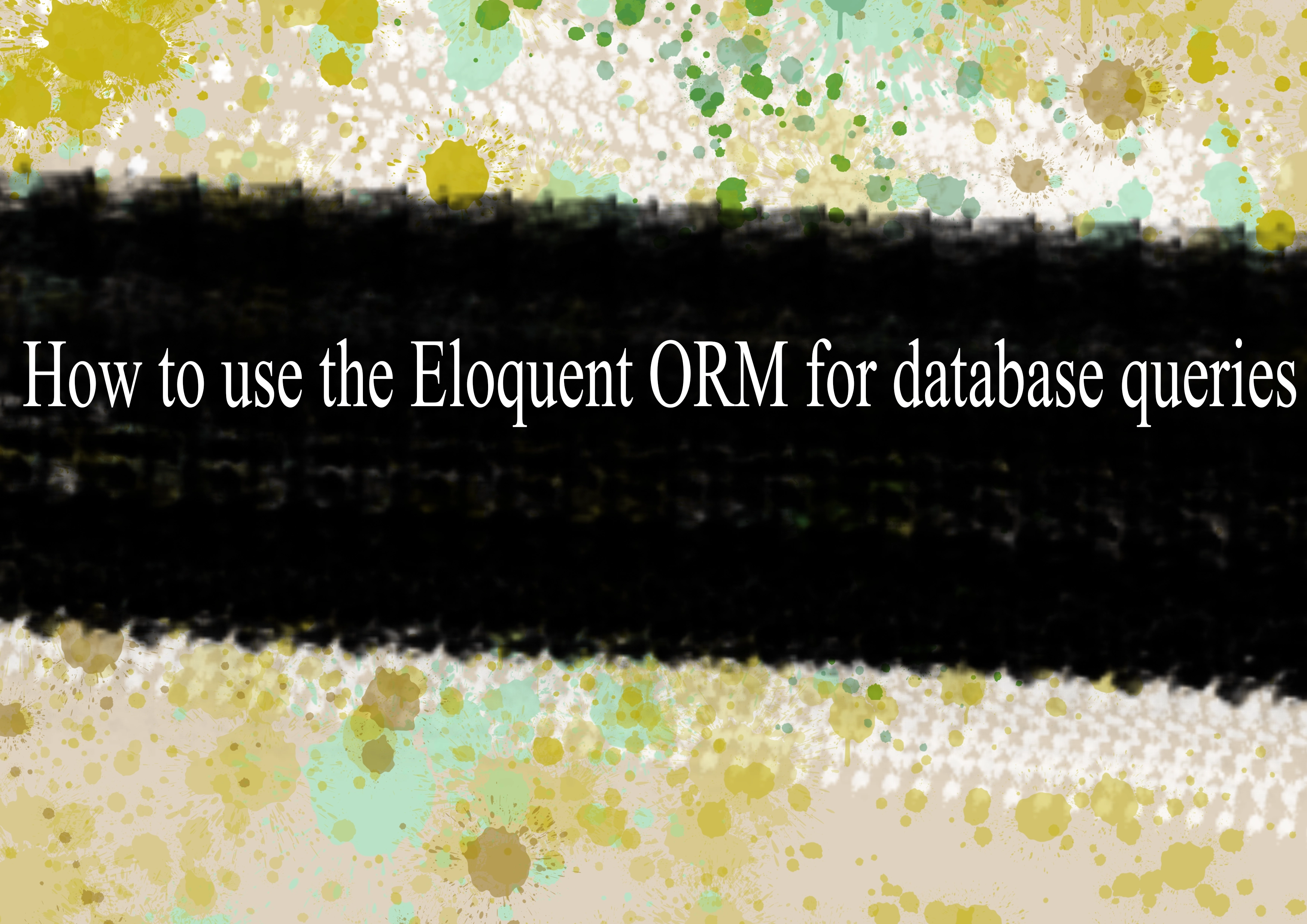How to use the Eloquent ORM for database queries

Eloquent is the Object-Relational Mapping (ORM) system included with the Laravel PHP framework. It provides an elegant and expressive way to interact with your database by allowing you to work with database tables using object-oriented syntax. Below are some common operations and examples of how to use Eloquent for database queries in Laravel.
1. Model Creation:
Create a model using Artisan command:
| php artisan make:model YourModel |
2. Basic CRUD Operations:
Create (Insert):
// Create a new instance of the model $record = new YourModel; // Set the attributes $record->column1 = 'value1'; $record->column2 = 'value2'; // Save the record to the database $record->save(); |
Read (Select):
Get All Records:
| $records = YourModel::all(); |
Get a Single Record by ID:
| $record = YourModel::find($id); |
Get Records with Conditions:
$records = YourModel::where('column', 'value')->get(); |
Update:
// Find the record by ID $record = YourModel::find($id); // Update the attributes $record->column1 = 'new_value1'; $record->column2 = 'new_value2'; // Save the changes to the database $record->save(); |
Delete:
// Find the record by ID $record = YourModel::find($id); // Delete the record $record->delete(); |
3. Mass Assignment:
When creating or updating records, you can use mass assignment to set multiple attributes at once:
// Create a new record $record = YourModel::create([ 'column1' => 'value1', 'column2' => 'value2', ]); // Update a record YourModel::where('id', $id)->update([ 'column1' => 'new_value1', 'column2' => 'new_value2', ]); |
4. Relationships:
Eloquent supports defining relationships between models. For example, if you have a Post model and a Comment model, you can define a relationship between them:
Eloquent supports defining relationships between models. For example, if you have a Post model and a Comment model,
you can define a relationship between them:
// Post Model class Post extends Model { public function comments() { return $this->hasMany(Comment::class); } } // Comment Model class Comment extends Model { // ... } // Access comments for a post $post = Post::find($postId); $comments = $post->comments; |
These are just some basic examples, and Eloquent provides many other features for complex queries, eager loading, and more. Refer to the Laravel documentation for a comprehensive guide: Eloquent ORM - Laravel Documentation.
=== Happy Coding :)
-
Popular Post
- How to optimize for Google's About This Result feature for local businesses
- How to implement multi-language support in an Express.js application
- How to handle and optimize for changes in mobile search behavior
- How to handle CORS in a Node.js application
- How to use Vue.js with a UI framework (e.g., Vuetify, Element UI)
- How to configure Laravel Telescope for monitoring and profiling API requests
- How to create a command-line tool using the Commander.js library in Node.js
- How to implement code splitting in a React.js application
- How to use the AWS SDK for Node.js to interact with various AWS services
- How to use the Node.js Stream API for efficient data processing
- How to implement a cookie parser middleware in Node.js
- How to implement WebSockets for real-time communication in React
-
Latest Post
- How to implement a dynamic form with dynamic field styling based on user input in Next.js
- How to create a custom hook for handling user interactions with the browser's device motion in Next.js
- How to create a custom hook for handling user interactions with the browser's battery status in Next.js
- How to implement a dynamic form with dynamic field visibility based on user input in Next.js
- How to implement a dynamic form with real-time collaboration features in Next.js
- How to create a custom hook for handling user interactions with the browser's media devices in Next.js
- How to use the useSWRInfinite hook for paginating data with a custom loading indicator in Next.js
- How to create a custom hook for handling user interactions with the browser's network status in Next.js
- How to create a custom hook for handling user interactions with the browser's location in Next.js
- How to implement a dynamic form with multi-language support in Next.js
- How to create a custom hook for handling user interactions with the browser's ambient light sensor in Next.js
- How to use the useHover hook for creating interactive image zoom effects in Next.js